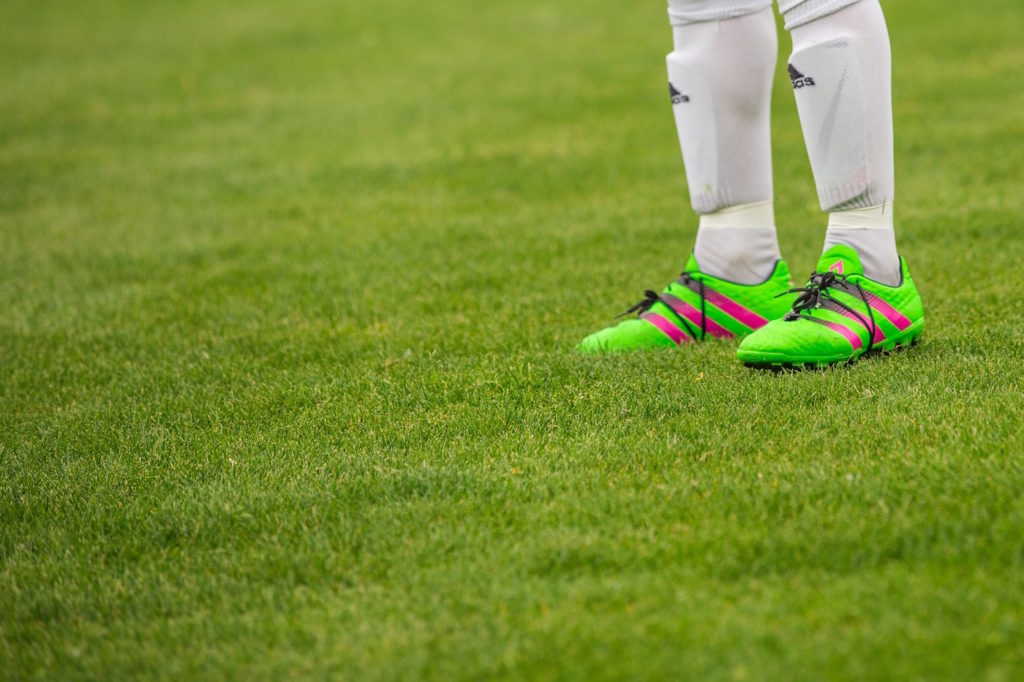When the Women’s World Cup soccer tournament opens on June 7, all eyes will be on the defending champion and number-one-ranked US Women’s National Women’s Team (USWNT). This should make us proud as Americans. But what we proud Americans will see this year when the national anthem is played should give us pause.
USWNT co-captain Megan Rapinoe has announced that she will protest during the US national anthem, including at the upcoming Women’s World Cup in France. Rapinoe will not sing the anthem, and she will not place her hand over her heart. In an article about her decision, Yahoo Sports writer Henry Bushnell describes Rapinoe as “the most courageous, open-minded social justice warrior American soccer has ever known.”
Is it really so “courageous” to dishonor the national anthem when a ninety-six-year-old World War II Army veteran is playing the national anthem at the opening of a soccer game? This is what Rapinoe did this past Memorial Day when WWII veteran Pete DuPré played the national anthem on his harmonica at the opening of the match between the US and Mexico in New Jersey. Listen to Pete DuPré play in this moving video. I think this man understands that our national anthem means something. In the video, one can see that the right hands of other team USA players are placed over their hearts as they sing along. But Rapinoe? At 01:27 one sees her with her hands behind her back. She is silent and grim-faced, protesting in “social justice warrior” mode.
Pete DuPré and some other WWII veterans met with some of the USWNT players on Omaha Beach in Normandy this past January. Rapinoe was there. I wonder if she has even the remotest idea about the real courage of those who fought for our freedoms and the freedom of Europe on the beaches of Normandy seventy-five years ago.
Start your day with Public Discourse
Sign up and get our daily essays sent straight to your inbox.Our National Symbols
This isn’t the first time Rapinoe has used the national anthem as an opportunity for political protest. In 2016, as a member of the Seattle Reign soccer team, Rapinoe followed Colin Kaepernick’s lead and knelt at the playing of the national anthem at professional soccer games. At the Reign’s match against the Washington Spirit, the Spirit owner decided to play the national anthem before the players walked onto the field in order to avoid a Rapinoe protest. She called the team owner’s maneuver “—ing unbelievable.” My response, as a Washington Spirit season ticket holder that year, was different. As I wrote here at Public Discourse, “I was sad and felt alienated from my delight in women’s soccer when football’s politics spread into soccer.”
Now my sadness runs deeper. This story tells a tale that goes beyond the protest of just this one player. This is a story about our national symbols, and thus it is a story about the state of our nation today.
Another two episodes in this tale occurred in June 2017 and June 2018, when the US Soccer Federation required our Women’s and Men’s National Teams to wear an LGBT rainbow on the USA jersey in international games “to celebrate LGBTQ Pride month.” Jaelene Hinkle, a Christian player who objected to the jerseys, has faced harassment on the field and been mocked off the field.
Why is the player who objects to wearing a controversial political symbol on the USA jersey the one to face consequences, while anthem-protesting Rapinoe is treated like a heroine? We have become a country that punishes a player who respects the national uniform, as Hinkle did, while our national team rewards a player known for her national anthem protests by appointing her as co-captain of the team. Rapinoe identifies herself by saying “I feel like I’m a walking protest.” She seems embarrassed to be American.
My sadness now is not just for my love of soccer. It is for our nation. Some may say I am too pessimistic or alarmist. I don’t think so. Sports are an important part of American culture. They function as a public arena where we see part of our culture surface in the public eye. What I see concerns me.
I see signs that the meaning of our national symbols is collapsing. In soccer, our US Men’s National Team and US Women’s National Team officially represent our country to the world. Why are the two national teams featuring a political symbol on the USA jersey facing no consequences? Aren’t the colors of our flag—red, white, and blue—a cultural norm? These National Teams appropriate a USA national jersey to promote a divisive political cause; an American refuses to sing the national anthem while representing the USA on a national team; a national team selects as co-captain, for the highest-visibility event of the sport, a player famous for protesting the national anthem. Remember, these incidents are happening on our national USA soccer teams, not privately-owned professional sports teams.
And this is not about just one rogue player. The US Soccer Federation is leading the way. To its credit, in reaction to Rapinoe’s 2016 protests, the Federation did establish a policy requiring players to stand for the national anthem. Unfortunately, in 2017 and 2018 the Federation also issued press releases in support of requiring players to wear an LGBT rainbow on the USA team jersey, and it is supporting the USWNT’s selection of Rapinoe as co-captain. Congress designated the US Olympic Committee (USOC) to oversee not only our participation in the Olympics but also our amateur, national sports teams. The USOC, however, seems to be asleep at the wheel.
So, what do we do? One option is that Congress could intervene to try to resuscitate our national symbols in sports. A member of Congress could propose a law requiring uniforms for our national sports teams—the teams officially representing the United States in international sports competitions—to be colored only red, white, and blue. Then members of Congress could show their own colors in a roll call vote. Do members of Congress still care about our national symbols and what they represent? Let’s find out. While they’re at it, if the US Soccer Federation continues to signal that it no longer wishes to represent America, maybe Congress needs to reconsider the initial offer of support it expressed in 2018 for hosting the men’s soccer World Cup, along with Canada and Mexico, in 2026.
Yet there is a deeper problem we the American people need to address, something no law can solve. Do we still care about what it means to be American? Or is every national symbol now going to be weaponized for the cause of the day in zero-sum, blue-versus-red political battles? Will these symbols eventually be dismissed altogether? If that happens, what then?
The State of Our Nation
Rapinoe views the playing of the national anthem as a “somber moment” for a “peaceful protest.” The Yahoo Sports article says that Rapinoe’s decision to protest the national anthem is about “inequality and injustice she was always aware of, but which she now feels compelled to do something about.” Rapinoe says of her anthem protest and subsequent backlash, “This is what it’s going to take for things to change, norms to change, conventions to change, to try to break down white supremacy and break down racial bias. It’s going to take it being hard. For everyone.”
Rapinoe’s list of the grievances she is protesting is wide-ranging: “atrocities . . . homelessness . . . mass incarceration . . . discrimination against people of color, and police brutality.” When the interviewer asks what it might take for her to return to respecting the national anthem, she responds,
It would take a lot. It would take criminal justice reform. It would take the huge inequality gap that we have to be much better. It would take a lot of progress in LGBTQ rights. We just have such a disparity in this country in so many different ways, inequality in so many different ways.
It is unclear to me how degrading national symbols advances Rapinoe’s goals. It’s one thing to participate in the hard work of governance to effect change. We are fortunate we have a political system that allows us to have a voice, to effect change inside the system. It’s another thing altogether, however, to express rejection of the system itself by rejecting national symbols. Degrading core national symbols undermines the system itself.
Degrading our sense of nationhood will not end inequality or injustice. Instead, rejecting the idea of America as a nation just moves us closer to a state in which the government can no longer function, because the people behind it no longer perceive themselves all together to be part of a nation with a common purpose.
This is not to say one should never protest. Quite the contrary. Our common purpose as a nation has always included finding a way to be the kind of country that allows people the freedom to protest. But protesting the system that allows the freedom to protest, which is what Rapinoe is doing, is self-defeating. Pulling us farther apart, rather than doing the hard work of learning to function together as one nation, will only foment division, and the consequences of further division may be dire.
Taking advantage of being American while rejecting being American is likely to be a self-defeating endeavor for Rapinoe. Right now, she takes advantage of getting to play for a great national team even while she undermines the nation that team represents. She is making use of our vibrant economy, the peace our veterans protected, and our strong rule of law to launch a new clothing line just days before the Women’s World Cup, when she will milk her role on the national team to get publicity for her new company. But our economy, our security, and our legal system will cease to exist if more and more Americans follow Rapinoe’s lead and begin to treat America, starting with its symbols, as nothing more than one more object of protest, instead of as a nation worth defending.














